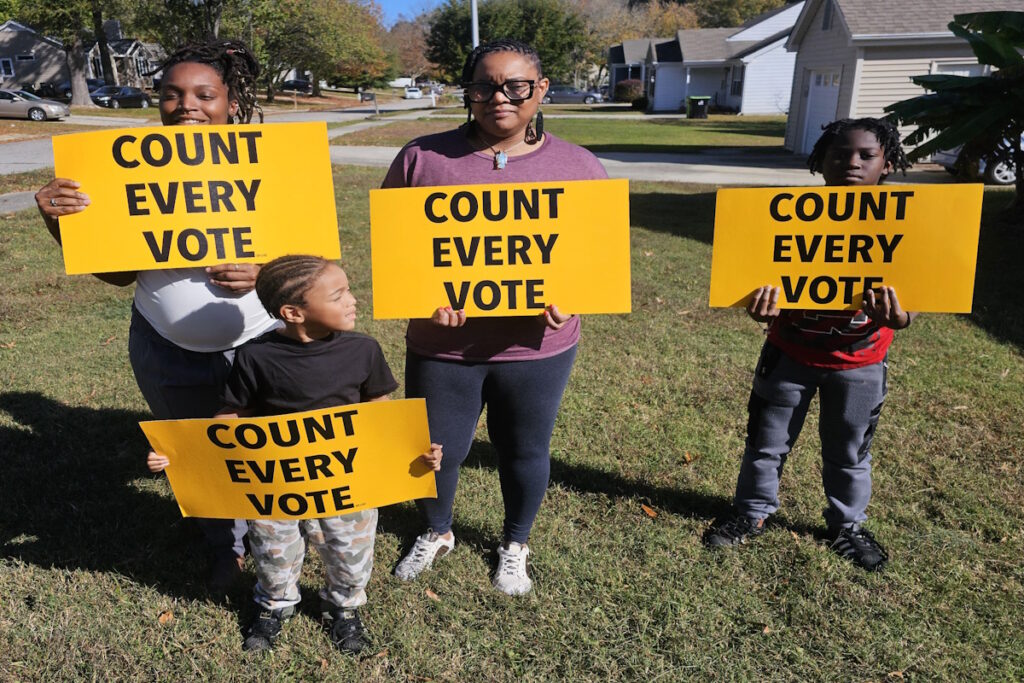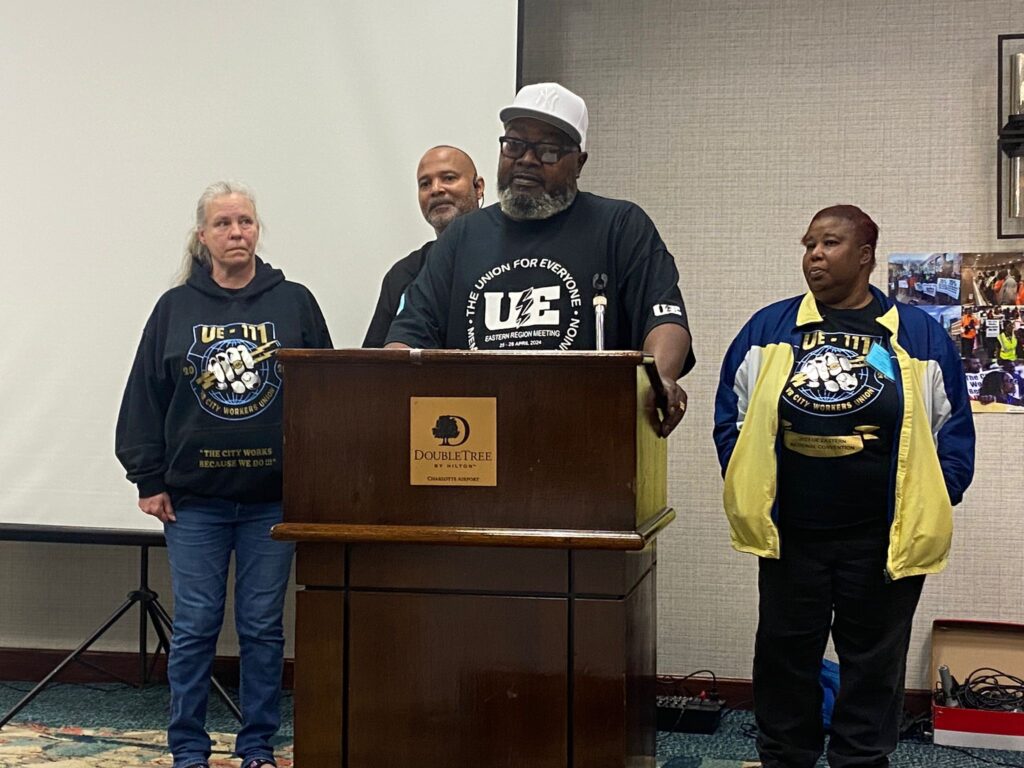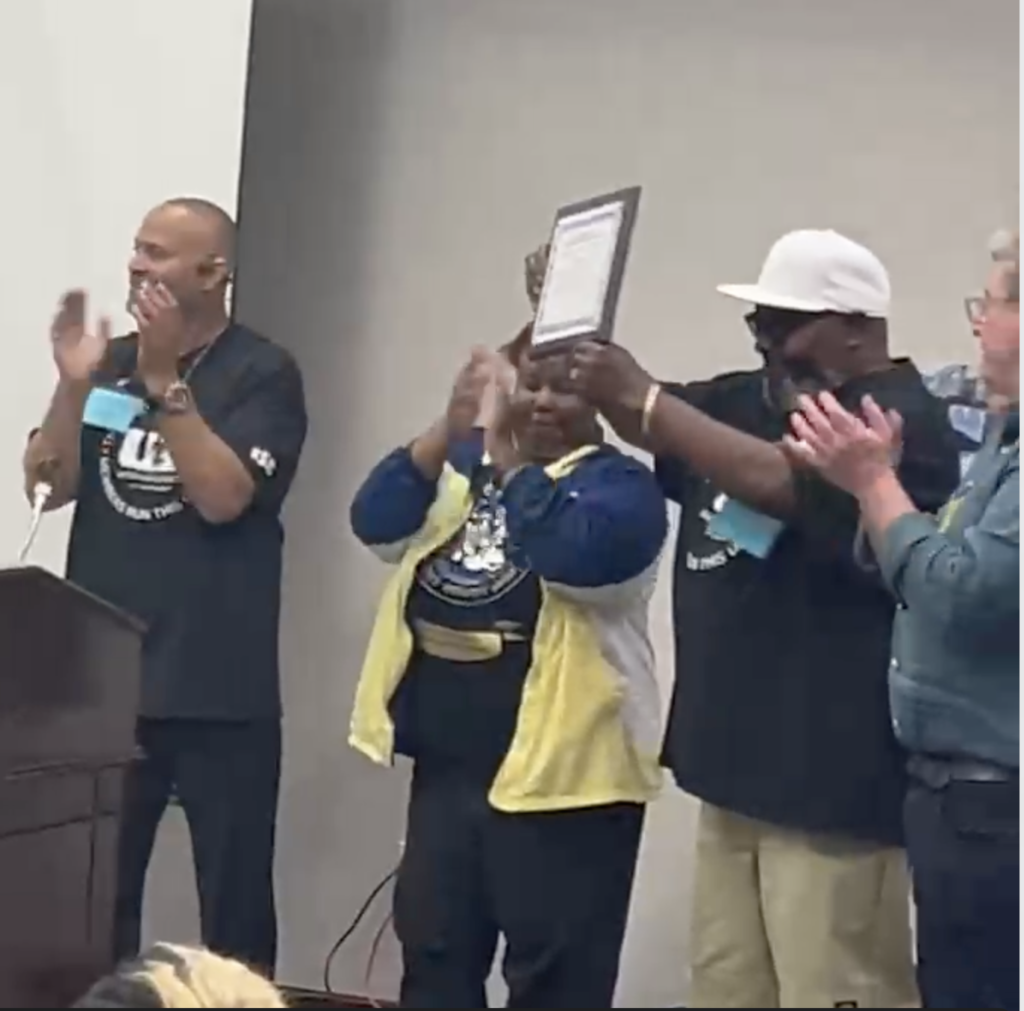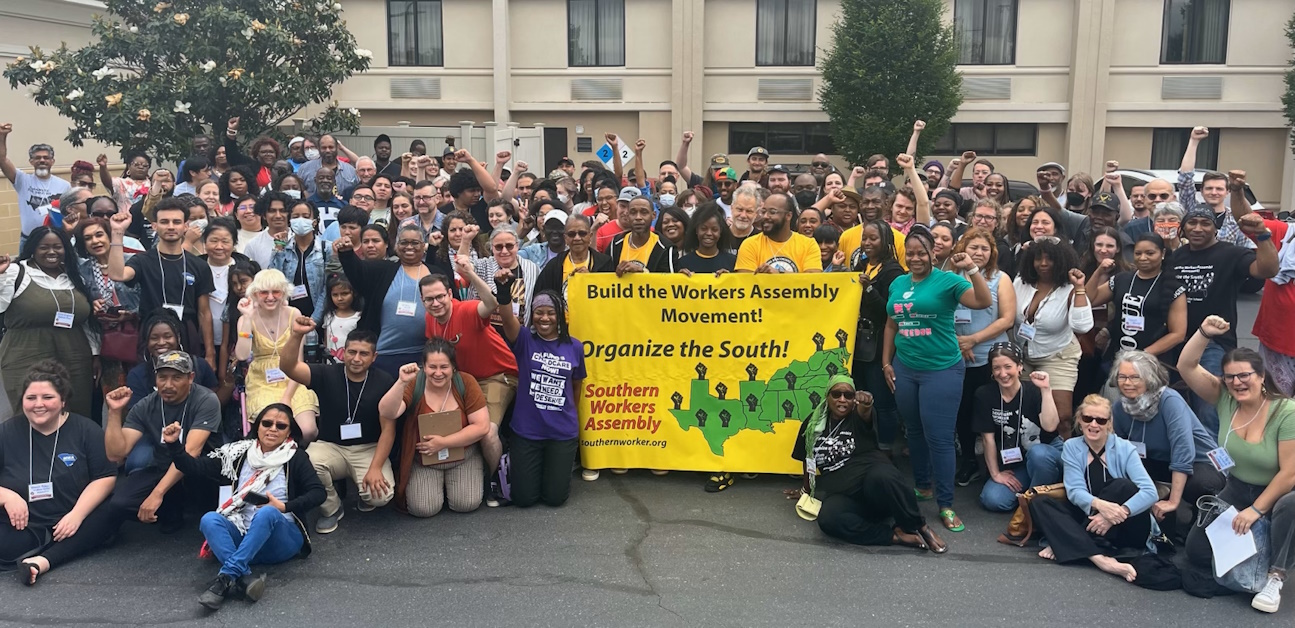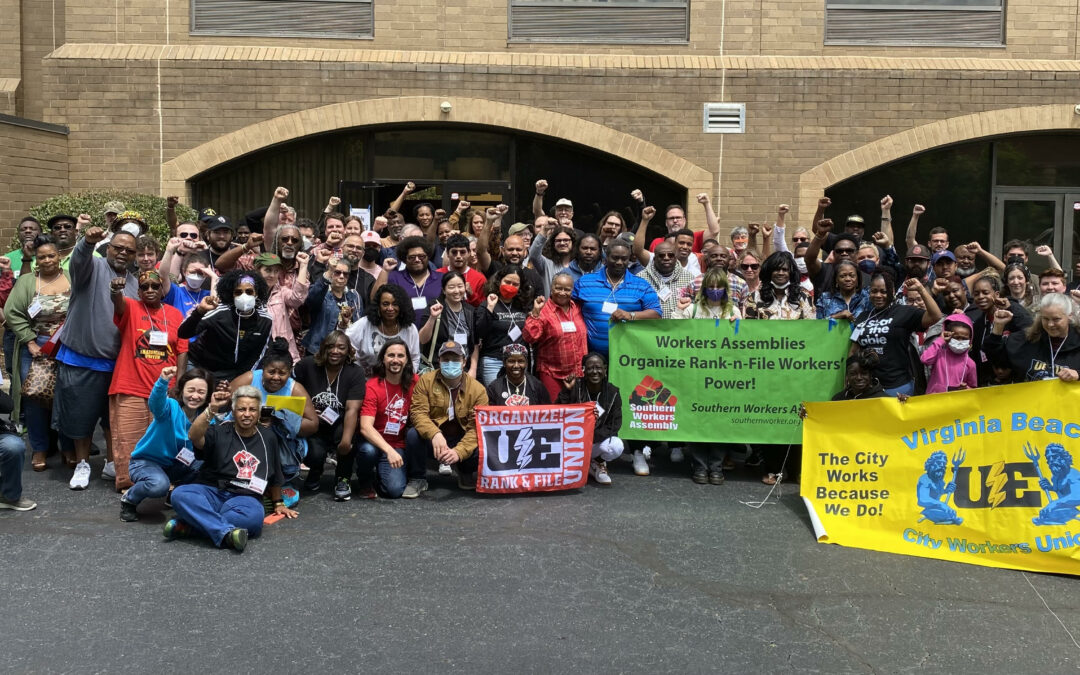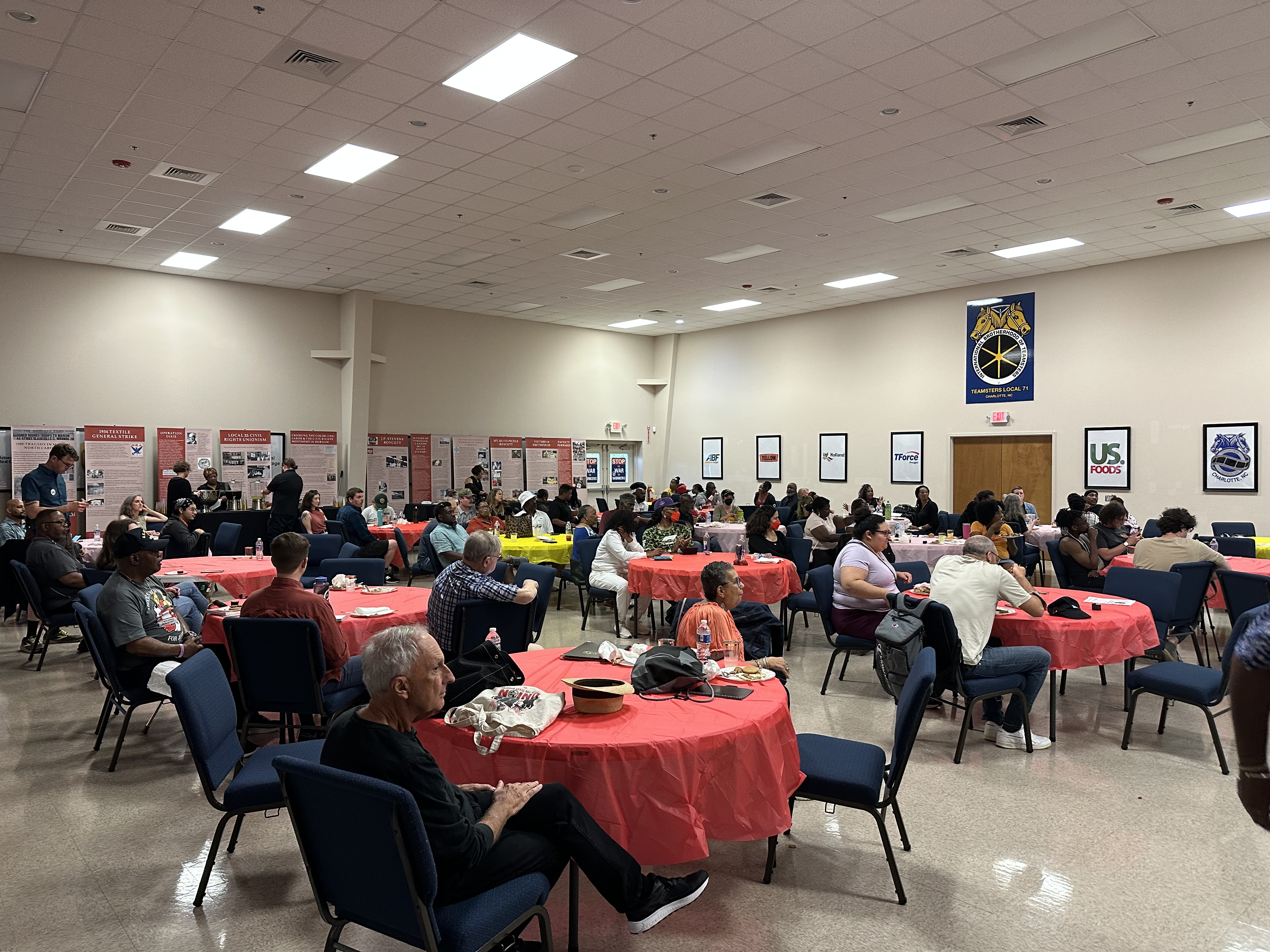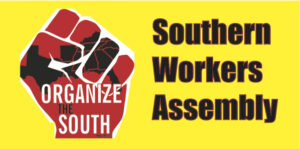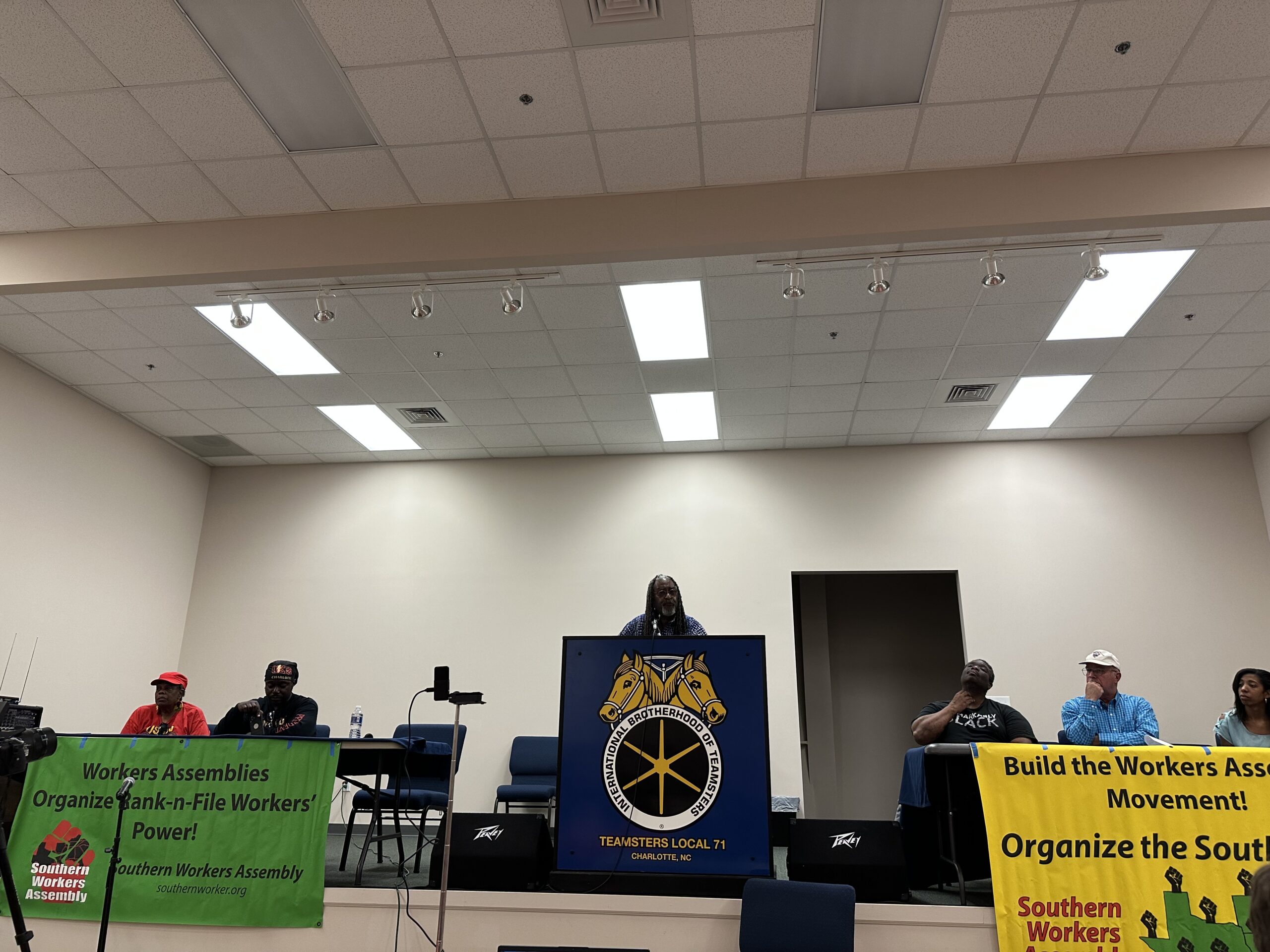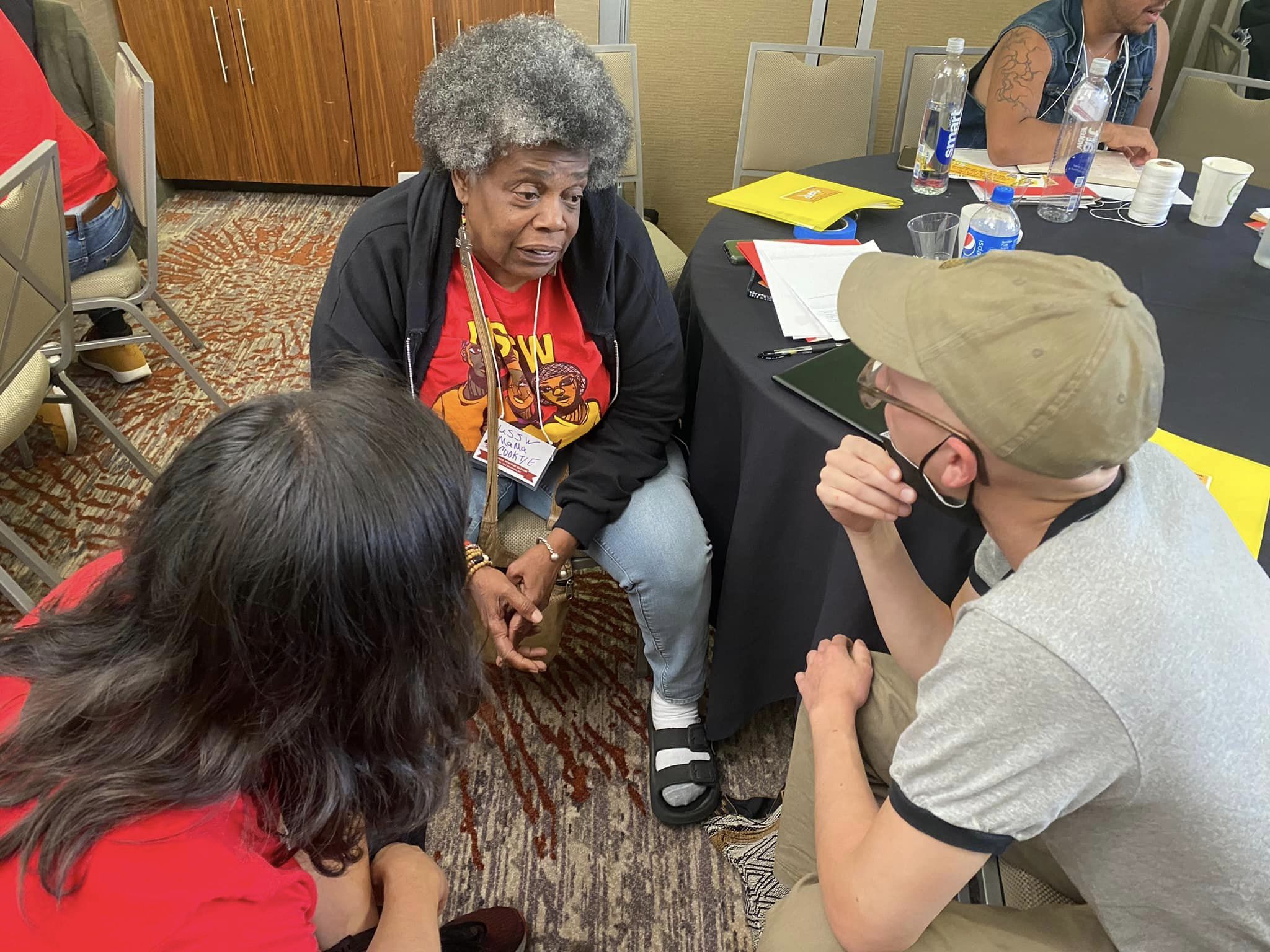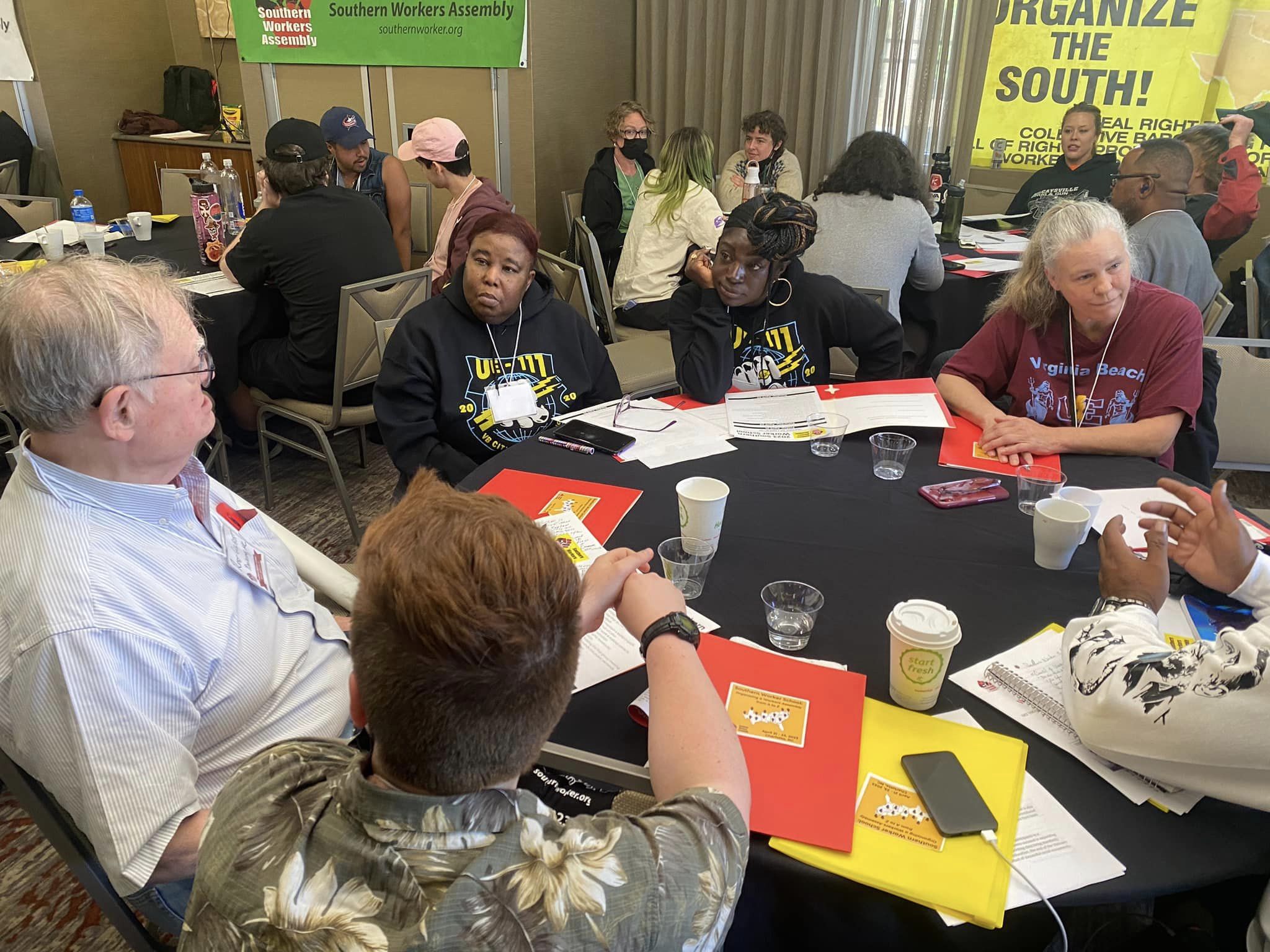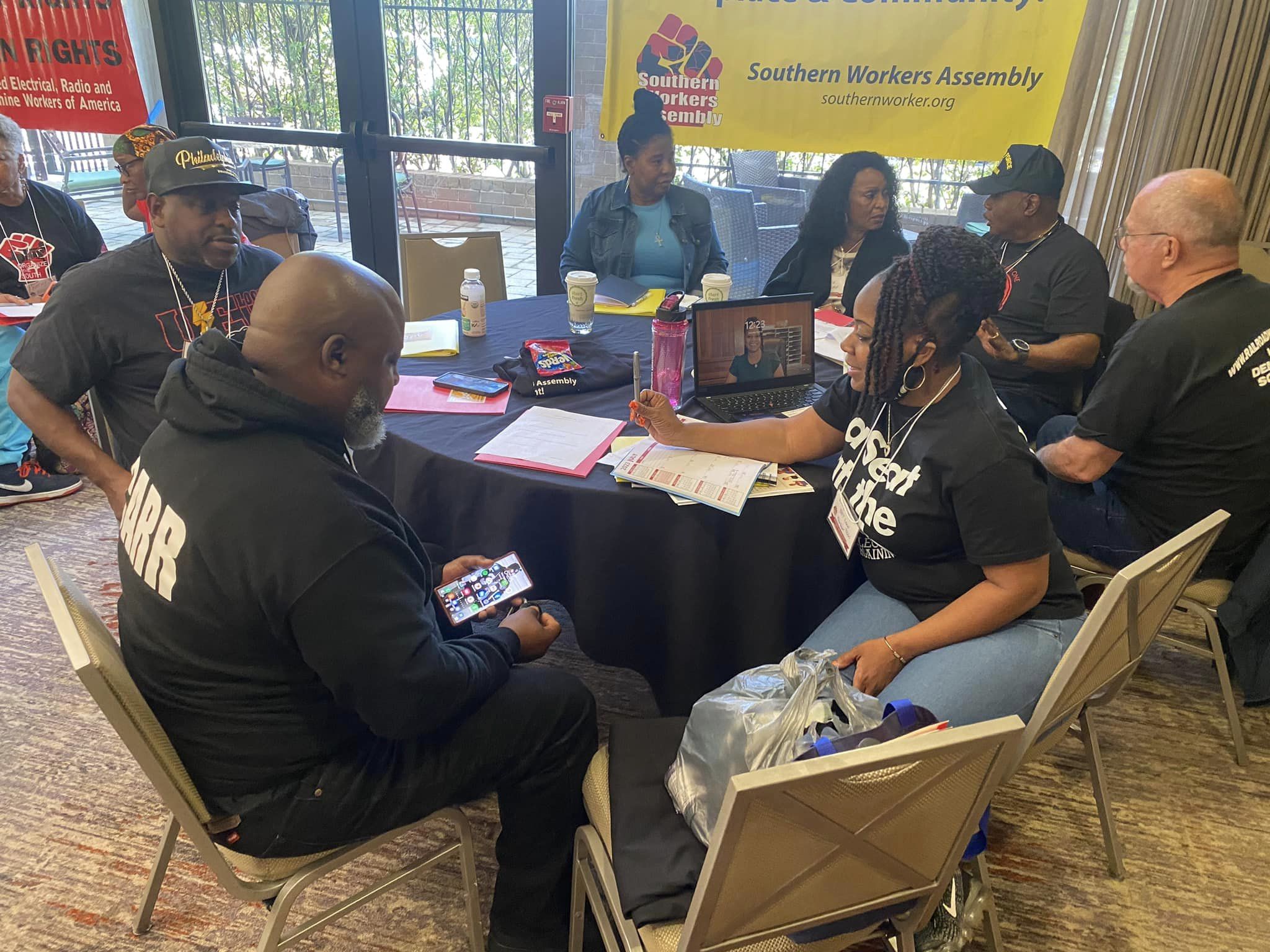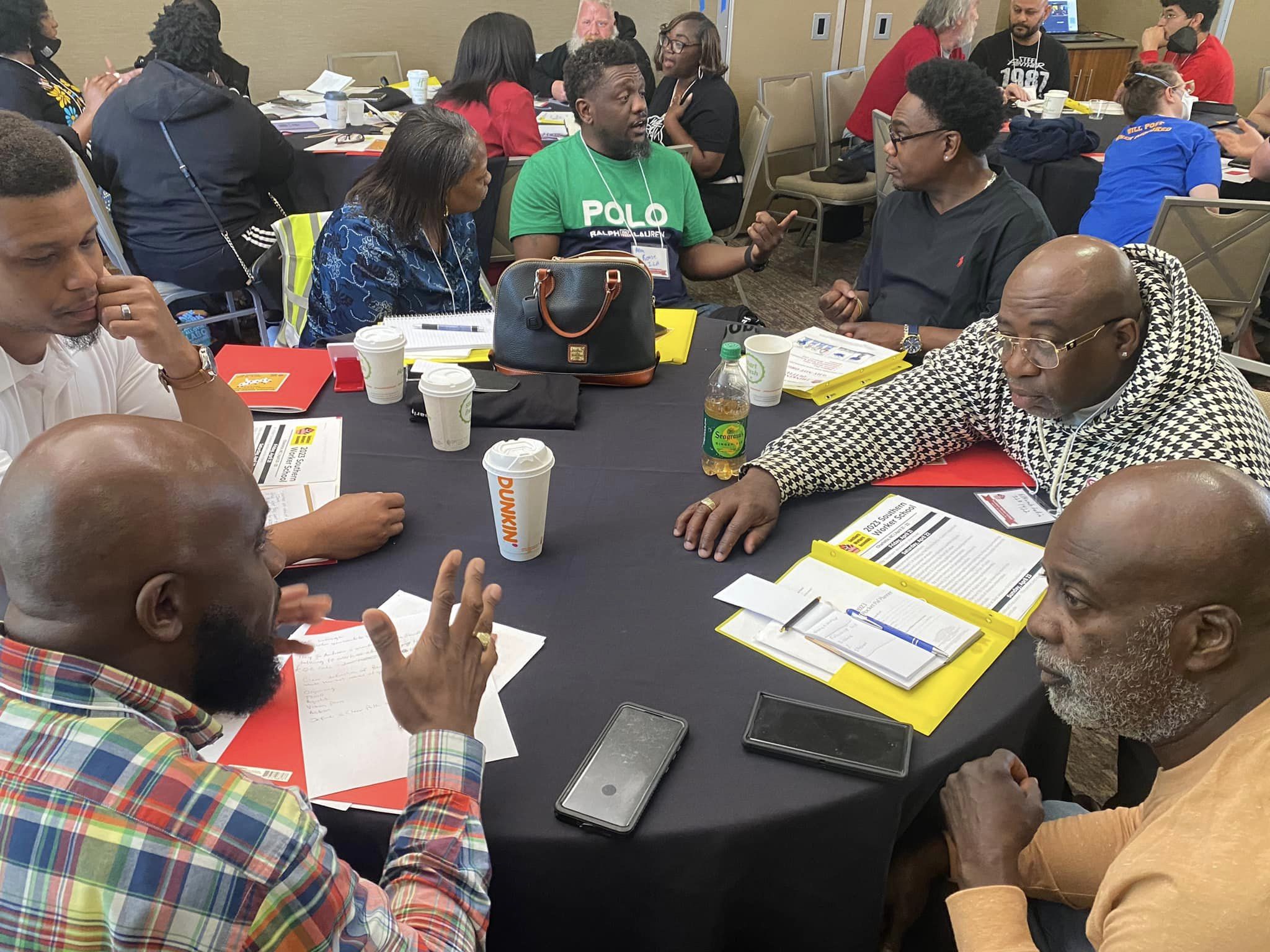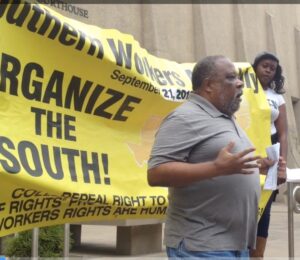NOT VOTING IS A VOTE FOR TRUMP
NOW IS NOT THE TIME FOR A PROTEST VOTE
BWFJ Editorial
Now is not the time for a protest vote that does not protect and defend Black, Brown, women’s, and working-class Immediate and long-term interests. Now is not the time for theoretical arguments disconnected from practices that don’t serve to immediately protect and better position Black and Brown women and workers to build independent fighting organizations.
Our people are in immediate danger from a right-wing movement that has existed long before but is now represented by Donald Trump. Freedom fighters and labor activists must build and evaluate a strategy to protect, defend, build, and position our people to better survive and fight in our own interests.
Kamala Harris and Donald Trump represent two arguing wings of the ruling class: Harris, the Warmongers, but American Patriots, who see capitalism best served by the US political system, the US Constitution, etc.
Trump represents the rabid right wing of that same ruling class that, as of now, controls or strongly influences the US Supreme Court down to county commissions (the seat of power in many parts of the South). It, as we saw Jan.6, also has those outside the so-called legal system: the 21st century KKK: Proud Boys, militias, 3%’ers, Oathkeepers, etc. who are well-armed, well-financed, well-connected, and well-trained, who’ve been practicing since well before now. With its international connections and technocrats like Elon Musk, this wing wants to do away with anything standing in its way to maximum profits, i.e., workers’ rights, right to assembly, free speech, health, environmental regulations, the so-called “social safety net,” It will not hesitate to unleash these 21st-century yahoos who have been psyched against immigrants, Black folks, Brown, Muslim, LGBTQ, and importantly, anyone who has spoken out against US policy. ,
THE BLACK WORKING CLASS RECOGNIZES FASCISM:
FROM THE KKK TO ZIONISM:
The Ku Klux Klan and other slave patrols were used to enforce the BLACK CODES to ensure the political subjugation and economic super-exploitation of the formerly enslaved Africans and the genocide and stealing of Indigenous people’s lands. At every level of government, state, local, and federal governments, the political persecution from Garvey to the FBI’s Counter Intelligence Program (COINTELPRO) is the governmental fascism Black folks have been living under since the 17th century Day. The latest has been the Uhuru 3, members of the African People’s Socialist Party, prosecuted for speaking in favor of Russian policy over US policy on Ukraine.
As reps of the ruling class, the Democrats and Republicans, Harris and Trump, are Both pledged to support Israel. Because of Israel’s strategic position representing US & European capitalism in that oil-rich region, US imperialism will never abandon Israel—no Matter Who Is In the White House. The only reason Trump is not an active warmonger today is that he is not in office. Donald Trump set up the Abrahamic Accords, rubber-stamped East Jerusalem as the capital of Israel, and the denial of a Palestinian state.
WE ARE ALL TARGETS IN CLEAR, IMMEDIATE & PRESENT DANGER
In fact, we know exactly who Trump is and what Donald will do.
—expand bans on abortion, contraception, IVF & reproductive rights;
—attack collective bargaining and union rights
— cut overtime and minimum wage protections
— cut Medicaid, Medicare & Social Security;
— cut food stamps and free school lunches
— reinstate the Muslim ban;
— deport millions of people from other countries, regardless of their status on paper.
— expansion of the 69 “cop cities” (highly funded, militarized, so-called police training facilities across the country.
— fire tens of thousands of federal employees who do not pledge loyalty to him.
— attack on all who challenge US policy as they ramp up attacks against Pro-Palestinian demonstrations.
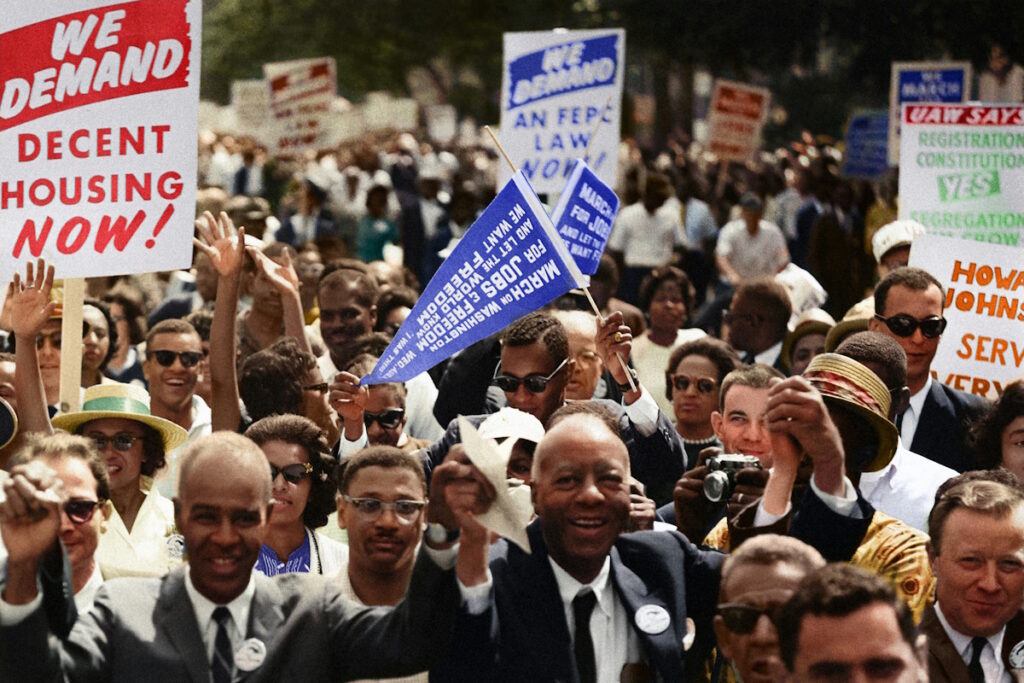
Photo by Unseen Histories on Unsplash
WE MUST DO EVERYTHING TO STOP FASCISM’S FULL TAKEOVER OF THE STATE APPARATUS — THIS MEANS STOPPING TRUMP AT ALL COSTS.
Without Medicare, Medicaid, school lunches, and food stamps, our community will be destitute, and without organizing community infrastructure – NOW for our own protection, our people will be defenseless.
Without overtime, collective bargaining & union rights, minimum wages, workers, and so our community remains defenseless and destitute.
CONCENTRATE NOW ON LOCAL COMMUNITY INFRASTRUCTURE TO PROTECT & DEFEND:
Food, Security, Emergency Disaster Support. We Must Be Able to Defend Ourselves. What are fighting organizations? Community and workplace organizations are accountable to us as workers as a community, not either party or outside group.
WE NEED A UNITED FRONT AGAINST FASCISM NOW
We must speak and move for ourselves with a sober analysis, an immediate strategy, and a plan. Block, community, regional, and national organizations share information and techniques that unify, defend, and strengthen rather than divide.
LASTLY, LET’S LEARN & BUILD FROM OUR OWN HISTORY.
The Black Liberation Movement and the Labor Movement in the US have histories of independent politics. Since the 1980s, local North Carolina Black Workers For Justice raised a Black Workers’ Political Platform campaign by petitioning and supporting independent Black majority slates to govern local governments, including Whitakers, NC, Fremont, NC, and Jackson, Miss. Before that, Black Liberation/New Afrikan forces developed the Kush District plan in the Delta, Miss. Before that was the National Black Independent Political Party, which evolved from the historic 1972 National Black Political Assembly. Before that, the Lowndes County (Ala.) Freedom Party and the Mississippi Freedom Democratic Party of the 1960s and our history of Black assemblies formed developing anti-slavery strategies and tactics in the 1800s. Currently, there is the New Afrikan Independent Party.
What have been our strengths, mistakes, successes, and weaknesses?
What was successful in building independent political organizations and actions that are accountable to our people and move our struggles for self-determination and power forward? In 1996, More than 1500 labor activists came together to form a labor party in this country, which failed.
Trump’s NY Times full-page ad called for the execution of 5 Black and Latino teenagers, “even after” they were Exonerated. The Trump Campaign is trying to use a cynical strategy of divide and conquer against Black men and Black women. Black men against Black men. We must not allow this. While sexism exists within our community, we must struggle against that – but our well-being will only rise as a family and as a people.
NOT VOTING IS A VOTE FOR TRUMP
NOW IS NOT THE TIME FOR A PROTEST VOTE

